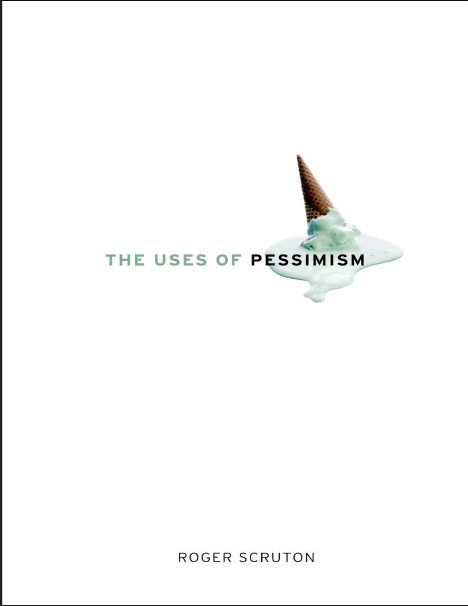Newly released
This book is new and will be uploaded as soon as it becomes available to us and if we secure the necessary publishing rights.

The Uses of Pessimism: And the Danger of False Hope Book PDF
(0)
Author:
Roger ScrutonNumber Of Reads:
77
Language:
English
Category:
Social sciencesSection:
Pages:
242
Quality:
excellent
Views:
1017
Quate
Review
Save
Share
New
Book Description
Ranging widely over human history and culture, from ancient Greece to the current global economic downturn, Scruton makes a counterintuitive yet persuasive case that optimists and idealists -- with their ignorance about the truths of human nature and human society, and their naive hopes about
what can be changed -- have wrought havoc for centuries. Scruton's argument is nuanced, however, and his preference for pessimism is not a dark view of human nature; rather his is a 'hopeful pessimism' which urges that instead of utopian efforts to reform human society or human nature, we focus on
the only reform that we can truly master -- the improvement of ourselves through the cultivation of our better instincts.
Written in Scruton's trademark style-- erudite, sweeping in scope across centuries and cultures, and unafraid to offend-- this book is sure to intrigue and provoke readers concerned with the state of Western culture, the nature of human beings, and the question of whether social progress is truly
possible.
Roger Scruton
Roger Scruton who has died of lung cancer aged 75, was a philosopher and a controversial public intellectual. Active in the fields of aesthetics, art, music, political philosophy and architecture, both inside and outside the academic world, he dedicated himself to nurturing beauty, “re-enchanting the world” and giving intellectual rigour to conservatism.
He wrote more than 50 books, including perceptive works on Spinoza, Kant, Wittgenstein and the history of philosophy, and four novels, as well as columns on wine, hunting and current affairs, and was a talented pianist and composer.
A member of the traditionalist-conservative Salisbury Group, he helped found the Salisbury Review, which he edited from 1982 to 2001. This quarterly, which was circulated in the Soviet bloc, often in samizdat form, was criticised in Britain for having retrograde attitudes. In 1984 it defended Ray Honeyford, the Bradford headteacher who had disputed the value of multicultural education. Consequent hostility from colleagues prompted Scruton to abandon in 1992 his professorship in aesthetics at what is now Birkbeck, University of London, where he had started as a lecturer in 1971. Though he felt this had scuppered his academic career, in the event it freed him for activities and adventures on a wider stage.
Read More
Book Currently Unavailable
This book is currently unavailable for publication. We obtained it under a Creative Commons license, but the author or publisher has not granted permission to publish it.
Rate Now
5 Stars
4 Stars
3 Stars
2 Stars
1 Stars
The Uses of Pessimism: And the Danger of False Hope Quotes
Top Rated
Latest
Quate
Be the first to leave a quote and earn 10 points
instead of 3
Comments
Be the first to leave a comment and earn 5 points
instead of 3